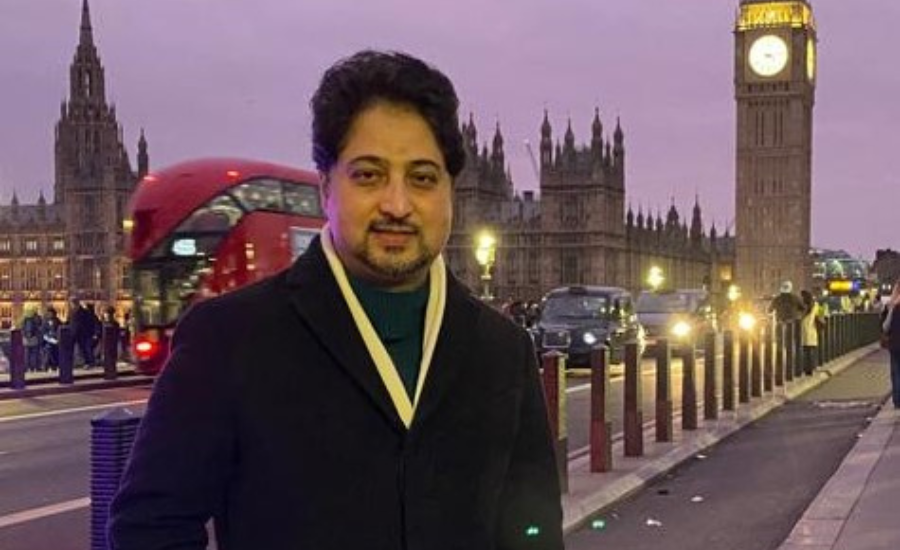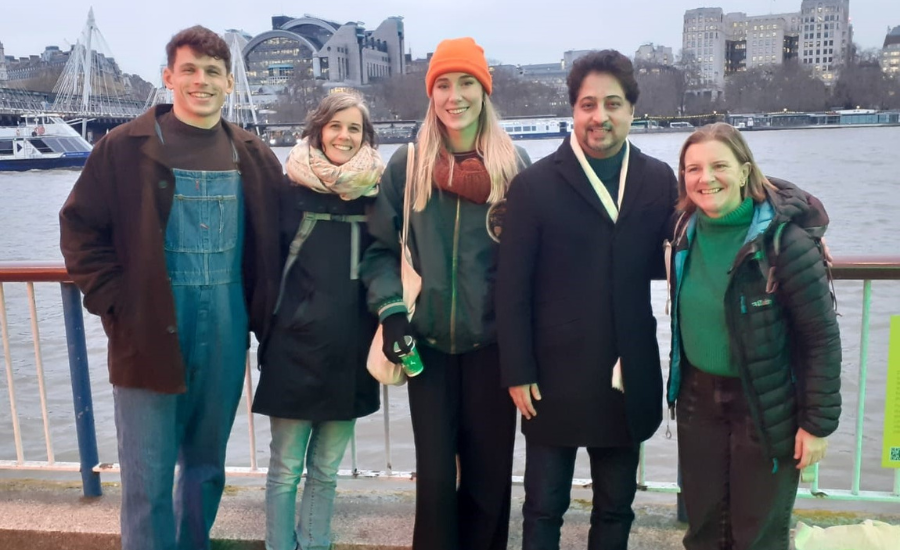Advocating for planetary health - Shahab's reflection on COP28
22 April 2024 London School of Hygiene & Tropical Medicine London School of Hygiene & Tropical Medicine https://lshtm.ac.uk/themes/custom/lshtm/images/lshtm-logo-black.png
Shahab Ali Siddiqi
As a MSc Climate Change & Planetary Health (CCPH) student at LSHTM, I realized early during the course, that we were not treated only as students, but also as professionals who have the experience worthy enough to contribute to the ongoing CCPH initiatives of the School. This was evident from the fact that we were invited to forums like Planetary Health Network to share our ideas and participate in its activities on a regular basis. In the same way, we were oriented about the Conference of Parties (COP28) in late 2023.
Empowered changemakers: the role of students in COP28
COP are annual meetings organized by the United Nations Framework Convention on Climate Change (UNFCCC), where representatives from countries around the world come together to discuss and negotiate actions to combat climate change. As a prominent voice in the arena of climate and health, the Centre for Climate Change and Planetary Health at LSHTM envisaged coming up with multiple communication activities emphasizing the significance of health in climate change discourse, influencing public opinion and highlighting the evidence for action.
During the weeks leading to COP28, I had several meetings with the School’s communications team to identify the key events which can be leveraged to achieve the objectives described above. Together we developed several documents and articles for regular releases during and after COP28. CCPH students and Programme Directors actively shared ideas and contributed to content development. The communication team encouraged the students to identify the events of their interest in COP28, which they would like to closely follow.
This was a really exciting opportunity to witness the proceedings of key events. One of the important events was the first-ever COP ‘Health Day’. The Health Day focussed on how climate change is impacting human health and what measures can be taken for the protection of health. This was seen as a major gain in securing the prominence of ‘health’ in the climate change agenda.
Witnessing COP28: a learning experience
In the series of events at COP28, I chose to attend the ‘Earth Information Day’ which focussed on the global climate observing systems and climate mitigation measures as well as demonstrated climate risk and resilience practices of various countries. As a student of climate change and planetary health, observing the discussions of the thought leaders in their respective fields was no less than an enlightenment. It was startling to learn about the huge gaps in the availability of climate data from Africa, South America, South-East Asia and Polar regions. The experts emphatically stressed bridging this gap in the evidence which is impeding informed climate action.
A positive step that brought some hope was the setting up of the Systematic Observation Financing Facility (SOFF), a specialized UN climate fund for closing systematic observation gaps. It provides long-term financial and technical support to generate and exchange basic weather and climate observations.
Well-informed speeches of the representatives from across the countries helped me build an understanding of climate challenges and mitigation measures from a global standpoint. The discussions brought me to the conclusion that there is a need for countries to co-design earth observation systems, develop relevant infrastructure and improve climate governance through scaling-up investments and intensifying involvement of all stakeholders. The key take-away was to ascribe utmost priority to climate action in the political manifestos of the countries as the only way towards meaningful and sustained impact.
Observing the engaging discussions at various events at COP28, galvanized the thoughts of my fellow students too, Andrea, one of the CCPH students, was glad to see that over 120 countries have signed on to the Climate and Health Declaration. It made her believe that the health co-benefits of equitable climate action will now be recognised.
Support from Programme Directors
The CCPH Programme Directors Ms Pauline Scheelbeek and Ms Pauline Paterson have played a critical role in encouraging and engaging students for the COP28 communications planning process, right from the very beginning. Their role as mentors and facilitators in this process helped the students to foresee what their future potential role as practitioners of planetary health could be on platforms like COP.
Looking back on the event, I am reminded of the words of Margaret Mead, who famously said, "Never doubt that a small group of thoughtful, committed citizens can change the world; indeed, it's the only thing that ever has."
I must say that by encouraging deep involvement in events such as these, the School has helped us understand the real-world application of what is being taught in the form of theories and concepts during the MSc programmes and has filled us with greater confidence in becoming positive change makers in years to come.
- Contact Shahab via our student and alumni ambassadors page.
- Read: Students including Shahab gave their reaction to discussions at the COP’s first-ever Health Day.
- Learn more about MSc Climate Change & Planetary Health which is now also available to study online.
